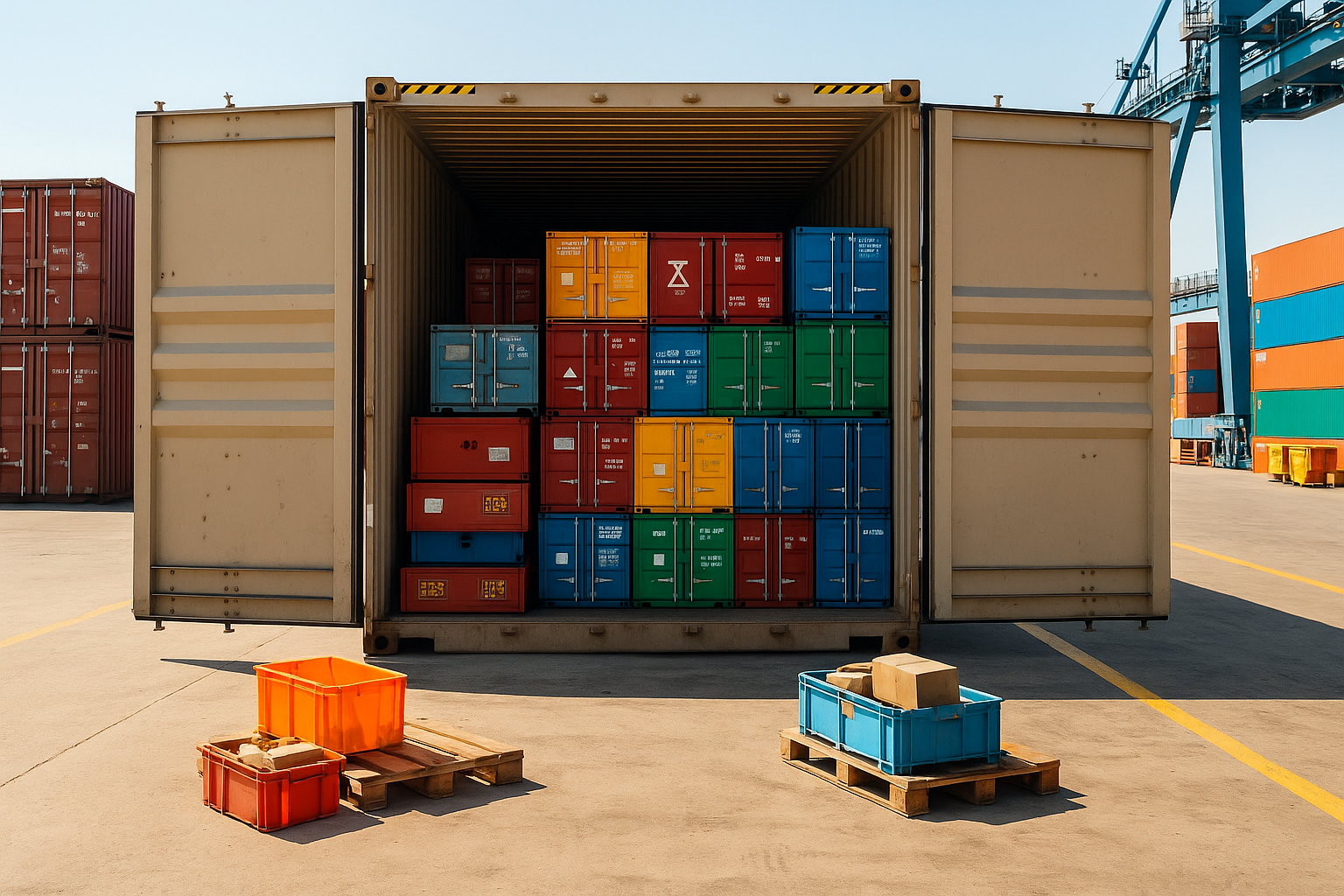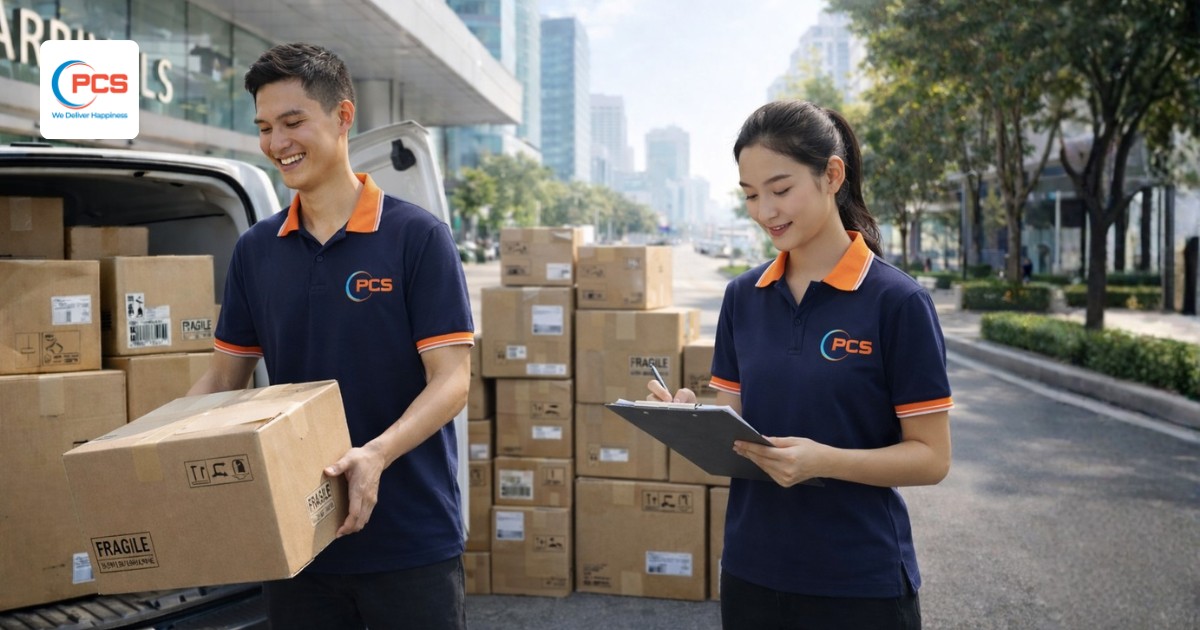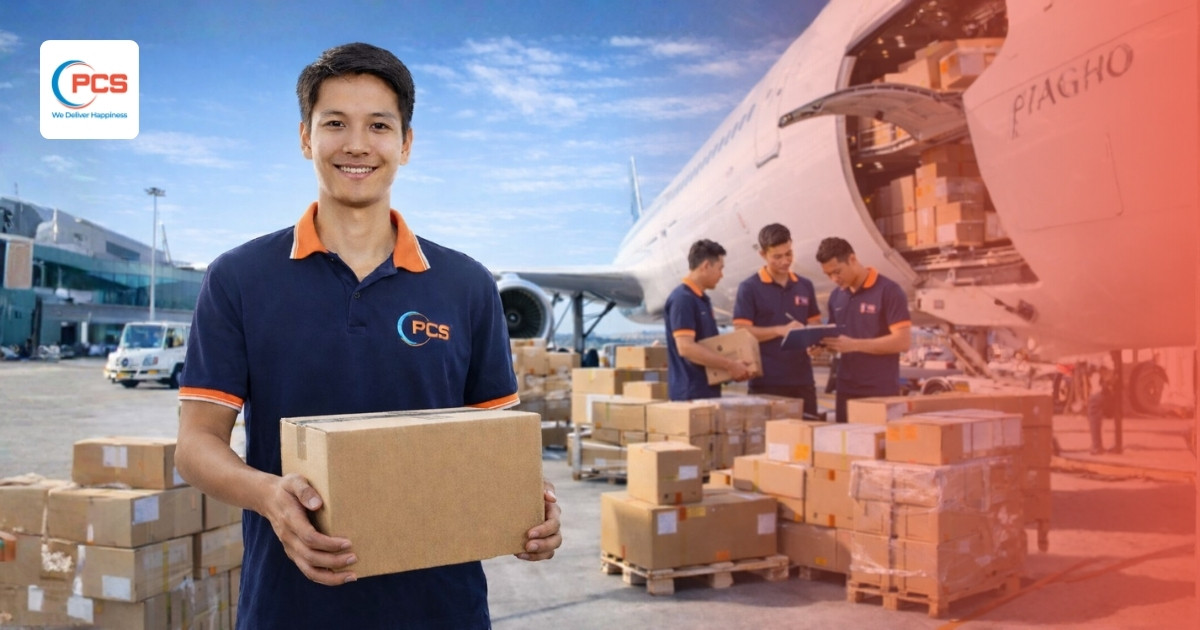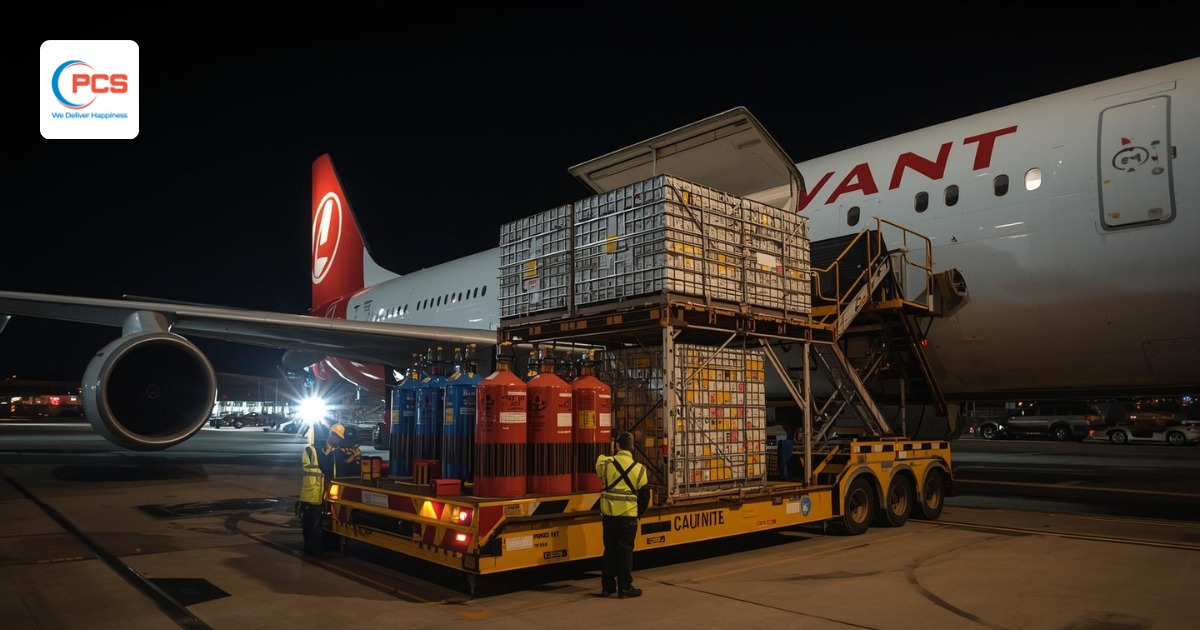Not every shipment is large enough to fill an entire container. For businesses moving small or medium volumes, LCL shipping services by PCS Logistics provide an economical and reliable solution. By consolidating cargo from multiple shippers into one container, PCS Logistics helps enterprises reduce costs, maintain schedules, and ensure cargo safety throughout the journey.
What is LCL shipping?
LCL (Less than Container Load) is a shipping method used when a company’s cargo does not fill an entire container. Instead of paying for the full container, the shipper is charged only for the actual space used, calculated by CBM or weight.
This process takes place at a Container Freight Station (CFS), where cargo from multiple shippers is consolidated, arranged, and loaded into a shared container. The sealed container is then transported internationally. Upon arrival at the destination port, it is deconsolidated at the local CFS, and each shipment.

Benefits of LCL (Less than Container Load) services
LCL shipping not only reduces costs for smaller shipments but also brings agility and transparency to international logistics management.
Cost savings
Enterprises are charged based on the actual cargo volume or weight rather than paying for a full container. This makes LCL an economical solution for small shipments, trial orders, or cross-border e-commerce.
Trade agility
With regular consolidation schedules at CFS facilities, businesses can plan frequent small shipments while maintaining consistent international trade flows.
Transparency and safety
Each shipment receives its own Bill of Lading, sealed and tracked throughout the journey. Shippers can monitor the cargo from consolidation at the origin CFS until deconsolidation at the destination port.
Cost components in LCL shipping
When using LCL shipping services, enterprises should consider the following costs:
-
International freight charges: calculated by CBM or actual weight.
-
CFS charges: handling, storage, and loading fees.
-
Customs clearance and documentation fees: export declarations, inspections, certifications.
-
Destination local charges: handling and deconsolidation costs at the import CFS.
These costs are usually disclosed upfront, enabling enterprises to forecast budgets and manage expenses effectively.
LCL (Less than Container Load) shipping process
To ensure reliability and minimize risks, the typical LCL shipping process includes:
-
Cargo delivery to CFS: the shipper delivers cargo and completes export documentation.
-
Consolidation and container loading: shipments from multiple shippers are arranged, loaded, and sealed.
-
Export customs clearance: each shipment is declared and cleared according to regulations.
-
International transportation: the sealed container is shipped by ocean freight on the scheduled vessel.
-
Deconsolidation at destination: the container is opened at the import CFS, and shipments are handed over to consignees for import procedures.
PCS Logistics combines industry expertise, global network coverage, and advanced cargo tracking technology to deliver LCL shipping services that are cost-effective, agile, and transparent. Whether you are managing small volumes, testing new markets, or running cross-border e-commerce, PCS ensures your cargo moves safely and reliably across borders.
Contact PCS Logistics today and explore how our LCL solutions can support your international growth.







